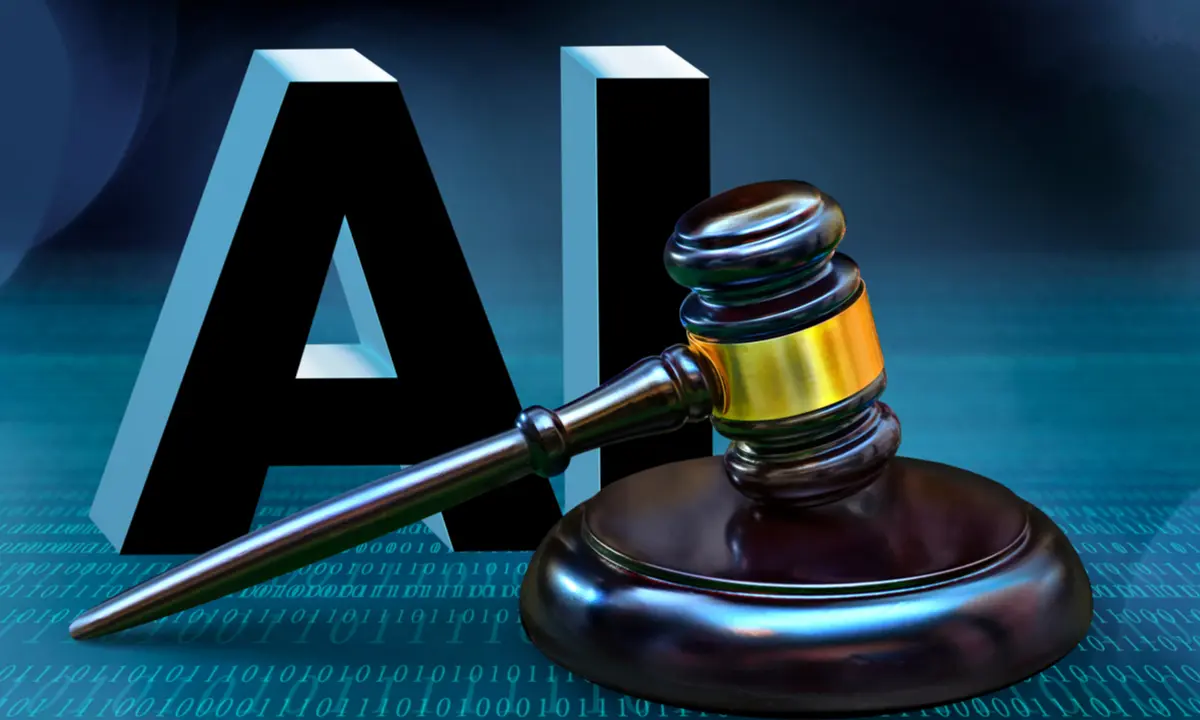The U.S. government is set to introduce new regulations on artificial intelligence, aiming to ensure ethical development and usage. These policies could have far-reaching effects on tech investments, startup growth, and corporate strategies as companies navigate compliance requirements
New AI regulations could reshape the tech industry, influencing innovation, investment, and compliance strategies
The U.S. government is taking significant steps toward regulating artificial intelligence (AI), marking a new era in the tech industry. With AI's rapid growth and widespread adoption across various sectors, policymakers are seeking to establish guidelines that promote responsible innovation while addressing concerns about security, privacy, and ethical use. As regulations take shape, investors, tech companies, and startups are evaluating how these changes will impact AI-driven businesses and future investments.
The Need for AI Regulations
AI has transformed industries ranging from healthcare and finance to manufacturing and defense. However, concerns about data privacy, algorithmic bias, intellectual property, and potential job displacement have prompted lawmakers to consider stricter oversight. The federal government aims to introduce a framework that ensures AI development aligns with national interests, ethical principles, and global competitiveness.
Key reasons driving AI regulations include:
- Preventing Bias and Discrimination – AI algorithms have been found to exhibit biases, affecting hiring, lending, and legal decisions.
- Protecting Consumer Data – AI-driven applications process vast amounts of personal data, raising security and privacy risks.
- Ensuring Transparency – Many AI models operate as "black boxes," making it difficult to understand their decision-making processes.
- Mitigating National Security Risks – AI-powered cyber threats and misinformation campaigns pose challenges to national security.
- Encouraging Ethical AI Development – Governments aim to set standards that promote fairness, accountability, and safety in AI applications.
Key Provisions in the AI Regulatory Framework
The proposed AI regulations are expected to focus on several critical areas:
Licensing and Compliance – AI companies may need to obtain regulatory approval before launching high-risk AI applications, such as deepfake technology or autonomous decision-making systems.
Transparency Requirements – AI developers might be required to disclose how their algorithms work and provide clear explanations for automated decisions.
Data Protection Measures – Stricter guidelines could be imposed on how AI systems collect, store, and use consumer data.
Liability for AI Failures – Businesses deploying AI may be held accountable for damages caused by faulty or unethical AI applications.
Ethical Standards – A government-led AI ethics board may oversee compliance and establish industry-wide guidelines.
How AI Regulations Will Affect Tech Investments
Regulations will have a profound impact on the AI investment landscape, creating both opportunities and challenges for tech companies and venture capitalists.
1. Increased Compliance Costs for AI Startups
Startups that rely on AI for their business models may face higher costs due to compliance with government regulations. This could limit the ability of smaller companies to compete with tech giants that have the resources to meet regulatory requirements.
2. Shift in Investment Strategies
Investors may prioritize funding AI companies that align with ethical AI development and regulatory compliance. Venture capital firms could shift their focus to businesses that emphasize transparency, accountability, and security in AI systems.
3. Slower Innovation in High-Risk AI Sectors
Tighter regulations may slow down advancements in high-risk AI fields, such as autonomous weapons, predictive policing, and deepfake technology. While this could reduce potential risks, it might also hinder breakthrough innovations.
4. Growth in AI Compliance and Security Solutions
The regulatory push will likely create a booming market for AI governance, risk management, and compliance solutions. Companies offering AI auditing tools, ethical AI frameworks, and security-focused AI technologies could see significant growth.
5. Global Competitive Implications
As the U.S. implements AI regulations, other countries may adopt similar or competing policies. Nations with more lenient regulations could attract AI investments, while companies in highly regulated regions might face challenges in global expansion.
Tech Industry’s Response to AI Regulations
Major tech firms and AI startups have expressed mixed reactions to the proposed regulations. While some companies welcome the clarity that regulations provide, others fear that excessive oversight could stifle innovation.
- Supporters of AI Regulation: Tech leaders, including Google, Microsoft, and OpenAI, have voiced support for AI governance, emphasizing the need for ethical AI development.
- Critics of AI Regulation: Some industry experts argue that excessive government intervention could hinder AI's potential to drive economic growth and technological breakthroughs.
- AI Advocacy Groups: Organizations promoting responsible AI, such as the Partnership on AI and the Future of Life Institute, are actively engaged in shaping fair and effective AI policies.
The Future of AI Regulations in the U.S.
The Biden administration and Congress are working on finalizing AI regulatory policies, with bipartisan discussions shaping the framework. Over the next year, businesses should expect additional guidance, compliance deadlines, and potential tax incentives for ethical AI development.

















